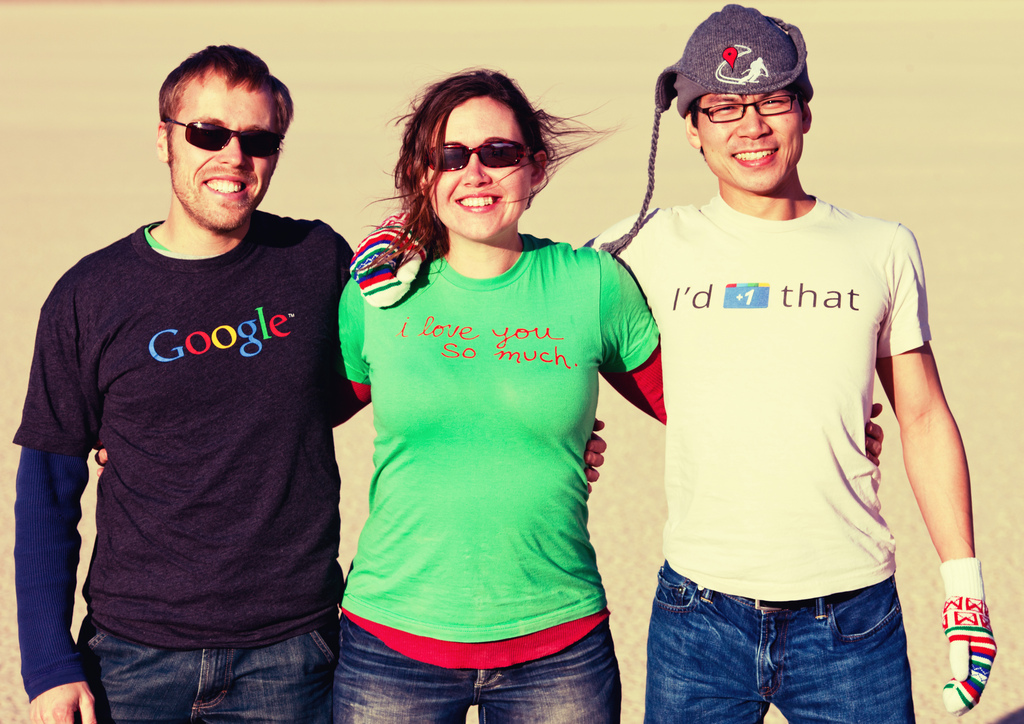
But a new report from Forrester says that Google’s going to win both battles.
[aditude-amp id="flyingcarpet" targeting='{"env":"staging","page_type":"article","post_id":716516,"post_type":"story","post_chan":"none","tags":null,"ai":false,"category":"none","all_categories":"big-data,business,media,social,","session":"D"}']“The database of affinity is Facebook’s birthright,” Forrester analyst Nate Elliott says. “And it’s going to blow it.
Google has owned intent with its AdWords product because intent is often most visibly demonstrated via a search. You’re looking for a new TV, you search for “flatscreen TV,” Google matches ads against your query. Affinity is fuzzier: you like Samsung, so you might be biased toward buying a Samsung TV.
AI Weekly
The must-read newsletter for AI and Big Data industry written by Khari Johnson, Kyle Wiggers, and Seth Colaner.
Included with VentureBeat Insider and VentureBeat VIP memberships.
Forrester says the database of affinity that Facebook and others are building is the holy grail of marketing, but adds, shockingly, that Facebook is not going to win.
“While it’s Facebook’s birthright to win the race for monetizing the database of affinity — after all it practically owns the trademark on ‘liking’ something — ultimately it will be Google that reaches the finish line first,” according to Elliot.
How?
You need three things to turn affinity data into that holy grail, Elliot says. Those three things are lots of affinity data from many varied sources, the capability to bring meaning to that data through intensive analysis, and a variety of brand ad units from markets to monetize that data and that meaning. According to Elliot, Google is able to beat Facebook on all three of those criteria.
Even affinity data — the kind of data that Facebook’s 83 billion likes is supposed to be able to deliver more than any other social network or search company.
[aditude-amp id="medium1" targeting='{"env":"staging","page_type":"article","post_id":716516,"post_type":"story","post_chan":"none","tags":null,"ai":false,"category":"none","all_categories":"big-data,business,media,social,","session":"D"}']
“While Facebook has more affinity data than anyone else, Google’s got a lot more of this data than you think it does — and Google’s affinity data covers a much broader range of social actions,” Elliot writes, citing 800 million YouTube visitors and 500 million Gmail users … and that Google “cheats” because it doesn’t just have access to data from its own sites and services but also from its search index, which “includes almost every review posted on any site online; the contents of billions of blog posts; and nearly everything posted on Twitter.”
In addition, the Forrester report says Google is both better at bringing meaning to data — better at “big data” analysis — and has more experience with and access to advertisers and multiple types of ad units, including video-based preroll ads on YouTube.
Building the database of affinity will help advertisers reduce wasted ad dollars by better targeting their best potential customers. It’ll also reward or punish social networks, search engines, and online sites’ ad revenues based on a better understanding of who is actually visiting, and what they’re actually doing.
Elliot sees this database of affinity emerging in four stages:
[aditude-amp id="medium2" targeting='{"env":"staging","page_type":"article","post_id":716516,"post_type":"story","post_chan":"none","tags":null,"ai":false,"category":"none","all_categories":"big-data,business,media,social,","session":"D"}']
- Simple affinity:
Facebook likes, Twitter accounts a user follows. - Big affinity:
Multiple merged datasets including purchase history. - Smart affinity:
Even more data, but now with real-time dynamic analysis to target ads down to the individual. - Ubiquitous affinity:
Applying online data to offline ads.
As that progression occurs, Forrester sees Facebook’s privacy issues going away and Google buying companies like CBS and MGM … and TV advertising starting to grow again as online affinity data informs offline ad buys.
“When Facebook shares too much with the public, it merely annoys people,” the report says. “But when Facebook shares with marketers, it creates value for those marketers — and users never even notice.”
photo credit: Thomas Hawk via photopin cc
VentureBeat's mission is to be a digital town square for technical decision-makers to gain knowledge about transformative enterprise technology and transact. Learn More
